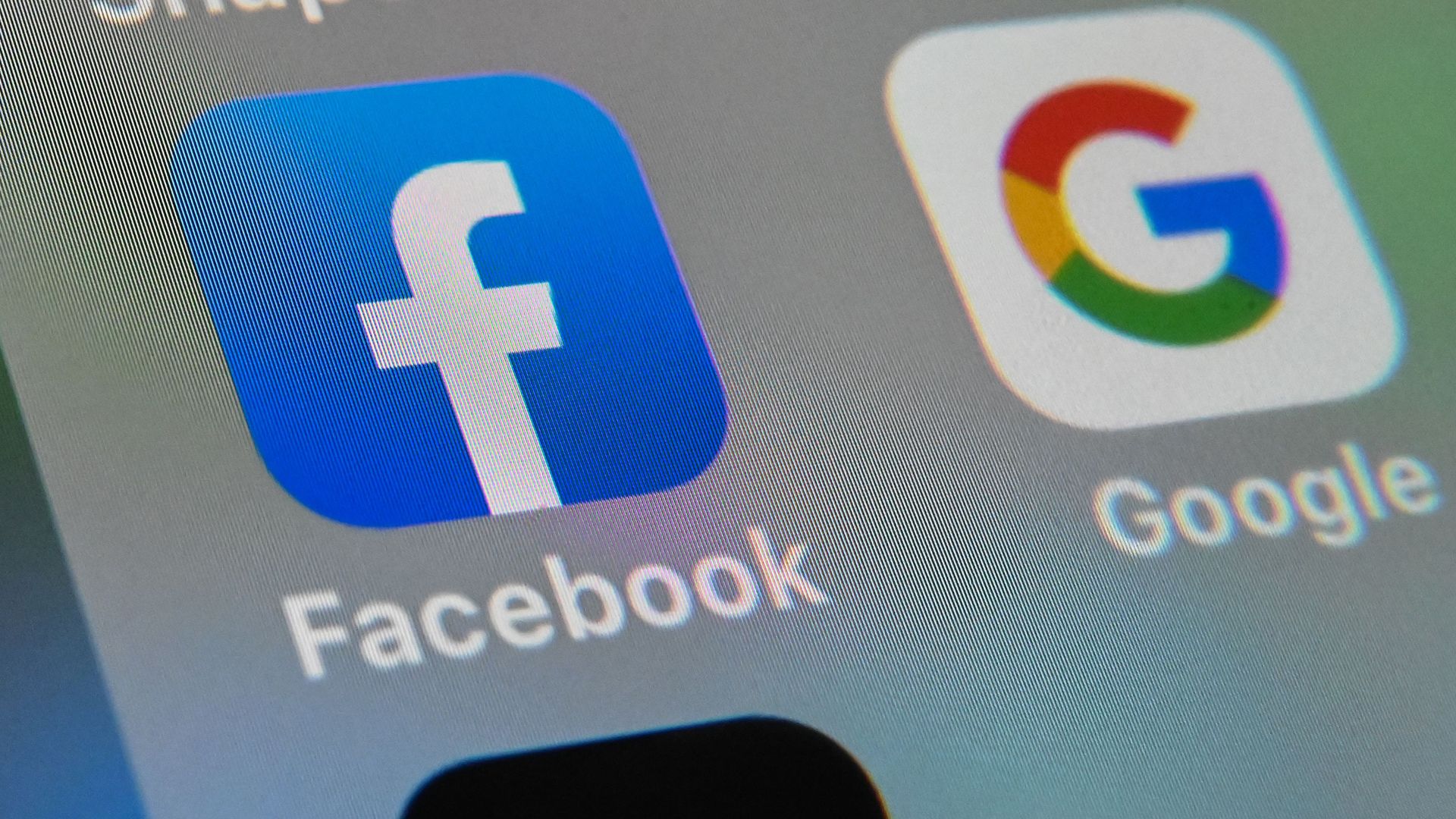Exclusive: Advocacy group targets Facebook's and Google's ad model
Add Axios as your preferred source to
see more of our stories on Google.

Photo: Denis Charlet/AFP via Getty Images
Facebook and Google should be broken up and stripped of their liability shield if they continue to sell advertising, argues progressive think tank the American Economic Liberties Project in a policy brief out Wednesday.
The big picture: The report ties together three major threads of the techlash: the idea that tech giants are too big; the concern that they harvest too much private data; and the threat to rein them in by taking away their broad legal immunity.
Details: The brief blames Facebook's and Google's ad-driven business model for the recent spread of conspiracy theories and violent rhetoric on their platforms following the police killing of George Floyd.
- Facebook and Google "turn our society into a click-bait driven culture, because they make money selling ads against click-bait," the paper says, contending that inflammatory content keeps people engaged so they spend more time on the platform, giving up more data, which can then be used for targeted advertising.
- The paper says regulators should break up the companies and legislators should stop them from making money by harvesting vast reams of data on their users, including by taking away the protections of Section 230 of the Communications Decency Act from companies that profit from advertising.
- Section 230, which is also under fire from the Trump administration, protects platforms from liability over content posted by their users.
Of note: While the brief suggests modifying Section 230 to address platforms selling any form of advertising, it also offers an intermediate step meant to force an end to targeted ads.
- "Modification would likely force Facebook and Google to change their business model," the paper says. "They would no longer profit from intrusive tracking of users, because they simply wouldn’t be able to sell advertising targeted to any specific person."
Yes, but: Although federal and state regulators are exploring antitrust cases against both companies, actually breaking them up is an arduous prospect that would take years to resolve in court. Meanwhile, Republicans and Democrats alike have threatened to revisit Section 230, but it's unlikely they'll see eye to eye on how to actually change it.
Context: The American Economic Liberties Project launched this year with a focus on fighting concentrated corporate power, and has pushed for action against tech giants.
- Facebook and Google, under antitrust scrutiny on a range of fronts, have argued they face plenty of competition in their markets, and that their Section 230 protections are vital for the online ecosystem.
